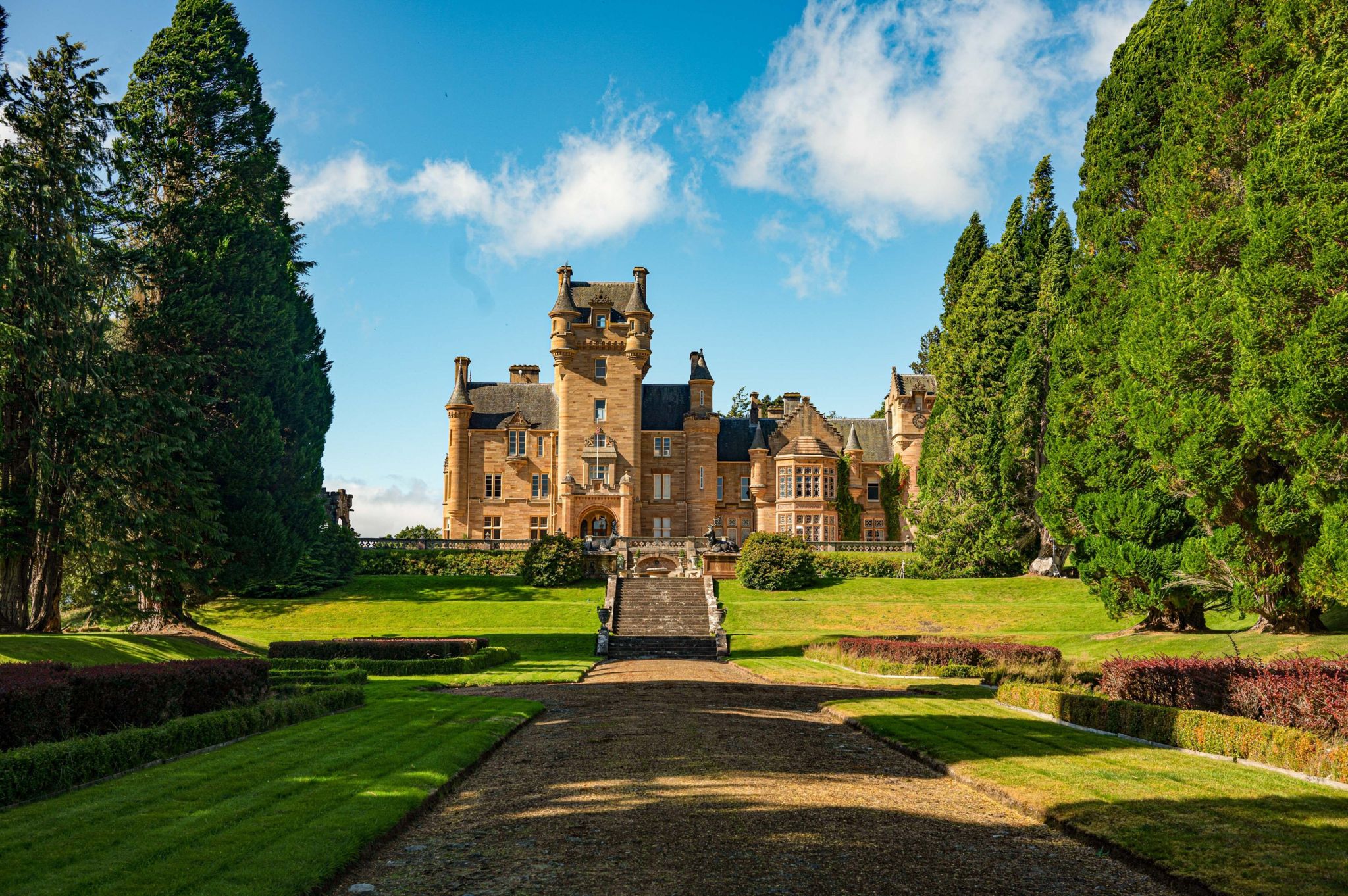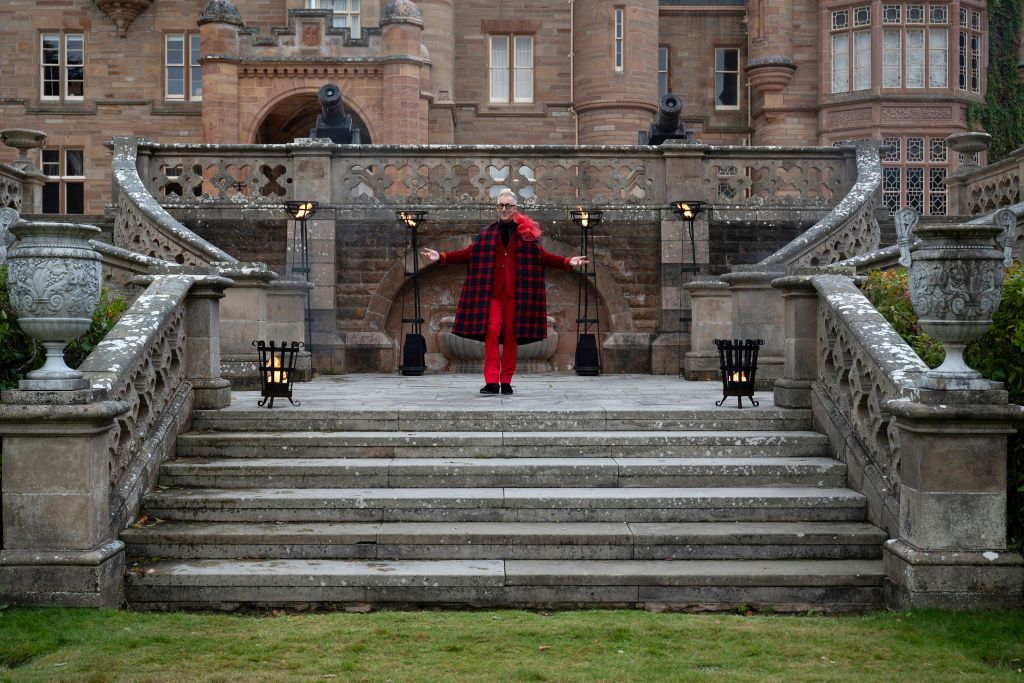Do The American Traitors Live In The Castle? Unpacking A Powerful Question
Detail Author:
- Name : Karli Koch III
- Username : rory.larson
- Email : bauch.rosalinda@hotmail.com
- Birthdate : 1990-12-23
- Address : 9982 Cielo Hollow Apt. 073 Collinston, MA 74901-3655
- Phone : +1-281-653-3733
- Company : Bauch, Bosco and Torphy
- Job : Cooling and Freezing Equipment Operator
- Bio : Non dicta minima sit ut aperiam rerum. Eum dolor qui eum modi voluptates omnis. Quas excepturi consequatur repudiandae eveniet. Pariatur quo recusandae in quia ratione.
Socials
facebook:
- url : https://facebook.com/rosalia2708
- username : rosalia2708
- bio : Iusto neque eligendi consequatur aspernatur.
- followers : 6281
- following : 485
tiktok:
- url : https://tiktok.com/@rosalia.marquardt
- username : rosalia.marquardt
- bio : Quam aliquid qui ipsa quis. Voluptatibus non laudantium quia eaque.
- followers : 1014
- following : 2974
linkedin:
- url : https://linkedin.com/in/rosaliamarquardt
- username : rosaliamarquardt
- bio : Eius error praesentium impedit cupiditate harum.
- followers : 3319
- following : 552
The question, "Do the American traitors live in the castle?" often sparks strong feelings and a bit of wonder, too. It makes us think about loyalty, about betrayal, and where power truly sits. This isn't just a simple yes or no kind of question, you see. It really asks us to look closely at what we mean by "traitor" and what "castle" might represent in our modern world.
For many, the idea of a "castle" brings up images of old, grand buildings, maybe with high walls and hidden rooms. It's a place of great power, a place where important decisions happen. When people ask if "traitors" live there, they are perhaps wondering if those who work against the country's best interests hold positions of significant influence or wealth, or something like that.
Today, as a matter of fact, we'll explore what this very powerful question means. We will look at the true definition of treason in the United States. We will also consider the symbolic meaning of a "castle" in our current times. It's a way to better understand the conversations we hear every day about who is loyal and who might not be.
Table of Contents
- What Does "Treason" Mean in the United States?
- The "Castle" as a Symbol: More Than Just Stone Walls
- Examining the Intent: What Drives Accusations?
- Is it Feasible to Identify a "Traitor"?
- Frequently Asked Questions About Treason and Allegiance
What Does "Treason" Mean in the United States?
The Constitutional Framework
The concept of treason is very, very serious. It is the only crime specifically defined in the U.S. Constitution. This shows just how important the founders thought it was. They wanted to make sure it was not used lightly, or to punish people just for disagreeing with the government. The Constitution gives very clear instructions about it, in a way.
Article III, Section 3, says what treason is. It limits the definition to very specific actions. This means that just saying something critical or having a different opinion is not treason. It's a very high bar to meet, you know.
This strict definition helps protect people's rights. It stops the government from accusing its citizens of disloyalty too easily. It's a fundamental part of how our system works.
Acts that Constitute Treason
The Constitution states two ways someone can commit treason. One way is by making war against the United States. This means actively fighting against the country, or helping its enemies do so. It's about performing an act of direct conflict.
The second way is by "adhering to their enemies, giving them aid and comfort." This means helping an enemy of the United States. It could involve giving them money, or information, or shelter. It's about assisting those who wish the country harm, so.
For someone to be found guilty, there must be strong proof. The Constitution requires either two witnesses to the same overt act, or a confession in open court. This is a very high standard of evidence. It protects against false accusations, you see.
The Weight of the Charge
Being accused of treason carries an immense weight. It is perhaps the most serious charge a citizen can face. The consequences are severe, including the possibility of a death sentence, though this is rarely carried out today.
Historically, accusations of treason have been rare in the U.S. It's not a charge that gets thrown around casually. This is because of the strict rules set forth in the Constitution, which is a bit of a safeguard.
The clear definitions help everyone understand what constitutes this crime. Just like a doctor of osteopathic medicine has a clear definition of their role, the law has a clear definition of treason. It's about precise language for serious matters.
The "Castle" as a Symbol: More Than Just Stone Walls
Historical Echoes of Power
When we think of a "castle," we often picture a place of great power and authority. Historically, castles were where rulers lived and made their decisions. They were centers of control, places that were hard to get into, you know.
This image suggests that those who might "betray" the country could be people with significant influence. They might be individuals who hold high positions. They could be people who have access to important information or resources, too.
The idea of a castle, in this sense, is about where power resides. It's not necessarily about a literal stone building. It's about the centers of decision-making and influence in society, which is a rather interesting thought.
Modern Interpretations of Influence
In today's world, a "castle" can mean many things. It might refer to political institutions, like the halls of government. It could also mean powerful corporations or financial centers, places where big decisions are made.
Sometimes, the "castle" could even be a metaphor for a very exclusive social circle. It might represent a group of people who hold a lot of sway. These are places or groups where power and wealth are concentrated, in a way.
So, when people ask if "traitors live in the castle," they are likely asking if those who act against the country's interests are found among the powerful. They wonder if such individuals are at the top of society. This is a common concern for many, actually.
Where Perceived "Traitors" Might Reside
The question really speaks to a public worry. People might worry that disloyal actions come from within the very systems designed to protect the country. They wonder if the danger is internal, not just external.
This concern often comes from a feeling that something is wrong. It might stem from a belief that those in charge are not working for the common good. It's a feeling that things are not as they should be, or something like that.
It's important to remember that perceptions can differ greatly. What one person sees as disloyal, another might see as a necessary action. This is why having clear definitions, like those for medical conditions or legal terms, really matters.
Examining the Intent: What Drives Accusations?
The Role of Public Discourse
Accusations of "treason" or being a "traitor" are often heard in public discussions. These words carry a lot of emotional weight. They can be used to describe actions that people strongly disagree with, or feel are harmful.
Sometimes, these accusations come from a place of deep frustration. People might feel that their leaders are not listening to them. They might believe that certain policies are hurting the country, you know.
It's a common thing for people to use strong language when they feel passionate about something. Just as we use "do" to make a verb more emphatic, people use "traitor" to emphasize their disapproval. It's a way of expressing strong feelings, basically.
Distinguishing Dissent from Disloyalty
A healthy democracy allows for strong disagreement. People should be able to criticize their government without fear of being called a "traitor." Dissent is a vital part of a free society, it really is.
The line between honest disagreement and actual disloyalty is very, very clear in the law. One involves speaking out or working for change within the system. The other involves actively aiding an enemy or waging war against the country.
It's like the difference between a doctor of osteopathic medicine and an M.D. They both "do" medicine, but their approaches might be a bit different. One is not disloyal to medicine; they just have different ways of doing things. We need to be careful not to confuse these things.
The Importance of Clear Definitions
Using words like "traitor" loosely can cause a lot of problems. It can make public discussions more heated and less productive. It can also make it harder to address real issues, you see.
Just as clear instructions tell a cell what to do, clear definitions help us understand complex situations. Without them, it's easy to misunderstand or misrepresent actions. This is why the precise legal meaning of treason is so important.
We need to be careful not to label people unfairly. Accusations without strong evidence can be very damaging. It's a bit like believing "detox foot pads work" without any scientific proof; it just doesn't hold up.
Is it Feasible to Identify a "Traitor"?
The Challenge of Evidence
Identifying someone as a "traitor" is not a simple matter. It requires very specific, undeniable proof of the actions defined by law. The burden of proof is very, very high in these cases.
It's not enough to have a suspicion or a feeling. There must be concrete evidence, such as testimony from two witnesses to the same act. This is a safeguard against baseless accusations, you know.
The legal system demands facts, not just opinions. This ensures that serious charges are only brought when there is strong justification. It's a fundamental principle of justice, actually.
The Legal Process at Play
If someone is suspected of treason, they would go through a full legal process. This involves investigations, trials, and the presentation of evidence. It's a thorough and rigorous procedure.
The person accused has rights, too. They have the right to a fair trial, to legal representation, and to confront their accusers. This process ensures that justice is served fairly, in a way.
This is how the country handles such serious matters. It's not about public opinion or strong feelings. It's about the law and due process. You can learn more about legal processes on our site.
Understanding Different Perspectives
People often have different ideas about what loyalty means. What one person sees as a patriotic act, another might view with concern. This is a natural part of a diverse society.
It's helpful to consider these different viewpoints. Trying to understand why someone holds a particular belief can make discussions more productive. It's about seeing the whole picture, more or less.
The question "Do the American traitors live in the castle?" often reflects these differing perspectives. It points to a desire for accountability and clarity in public life. It's a question that keeps coming up, apparently, especially in our current times, May 16, 2024.
Frequently Asked Questions About Treason and Allegiance
What does "treason" actually mean in American law?
In American law, treason has a very specific meaning. It is defined in the U.S. Constitution, Article III, Section 3. It means making war against the United States. It also means giving aid and comfort to its enemies. This definition is quite narrow, and it requires clear actions, not just thoughts or words. It's about performing a specific act against the nation.
Is the idea of "traitors living in castles" literal or symbolic?
The idea of "traitors living in castles" is almost always symbolic. It does not mean that actual castles are full of people who have committed treason. Instead, the "castle" represents places of great power, influence, or wealth. It suggests that those who might act against the country's interests could be found among the most powerful members of society. It's a way of talking about where power resides and whether it is being used for good or ill.
How does one identify a "traitor" in today's world?
Identifying a "traitor" in today's world requires strict adherence to the legal definition of treason. It is not about personal opinion or political disagreement. It means having concrete evidence that someone has either waged war against the U.S. or given aid and comfort to its enemies. This evidence must meet a very high legal standard, such as testimony from two witnesses to the same act. It's a serious legal determination, not a casual label. We need to look at the facts and the law, not just feelings. You can find more information about the legal definition of treason at Cornell Law School, for instance.
The question, "Do the American traitors live in the castle?" really gets us thinking about what loyalty means. It makes us consider where power sits. It also pushes us to think about how we define those who work against a country's interests. Understanding the actual legal meaning of treason is very important. It helps us have more informed conversations. It also helps us avoid misusing such a serious word. It encourages us to look for clear evidence. It also reminds us that dissent is a vital part of a healthy society. We can all do our part to promote clear thinking on these big topics. We can also do our part to promote understanding. It's about doing what is right, really. We can all learn more about how our government works to understand these questions better.


